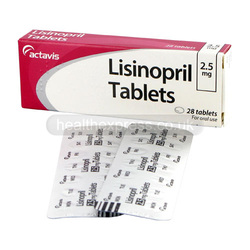Pharmacology definition - ACE Inhibitor

ACE inhibitor
ACE inhibitor is also known as angiotensin converting enzyme inhibitor. ACE inhibitor include, captopril, lisinopril and ramipril. ACE inhibitor is useful as part of the treatment regimen for congestive cardiac failure and hypertension as well as myocardial infarction and diabetic nephropathy. In diabetic nephropathy, ACE inhibitor will reduce the rates of proteinuria.
ACE inhibitor will react by inhibiting the action of angiotensin converting enzyme. This angiotensin converting enzyme or peptidyl dipeptidase may hydrolyze angiotensin I to angiotensin II and may increase the in activation of the bradykinin. In activation of bradykinin may result in vasoconstriction. Angiotensin itself may also act as vasoconstrictor which may lead to an increase in the water and salt retention of the kidney.
ACE inhibitor may reduce the level of angiotensin and increase the activation of the bradykinin which may decrease the peripheral resistance.
The common side effects of ACE inhibitor are proteinuria, renal failure, hyperkalemia, cough, hypotension, angioedema and teratogenic effect.
ACE inhibitor is also known as angiotensin converting enzyme inhibitor. ACE inhibitor include, captopril, lisinopril and ramipril. ACE inhibitor is useful as part of the treatment regimen for congestive cardiac failure and hypertension as well as myocardial infarction and diabetic nephropathy. In diabetic nephropathy, ACE inhibitor will reduce the rates of proteinuria.
ACE inhibitor will react by inhibiting the action of angiotensin converting enzyme. This angiotensin converting enzyme or peptidyl dipeptidase may hydrolyze angiotensin I to angiotensin II and may increase the in activation of the bradykinin. In activation of bradykinin may result in vasoconstriction. Angiotensin itself may also act as vasoconstrictor which may lead to an increase in the water and salt retention of the kidney.
ACE inhibitor may reduce the level of angiotensin and increase the activation of the bradykinin which may decrease the peripheral resistance.
The common side effects of ACE inhibitor are proteinuria, renal failure, hyperkalemia, cough, hypotension, angioedema and teratogenic effect.
